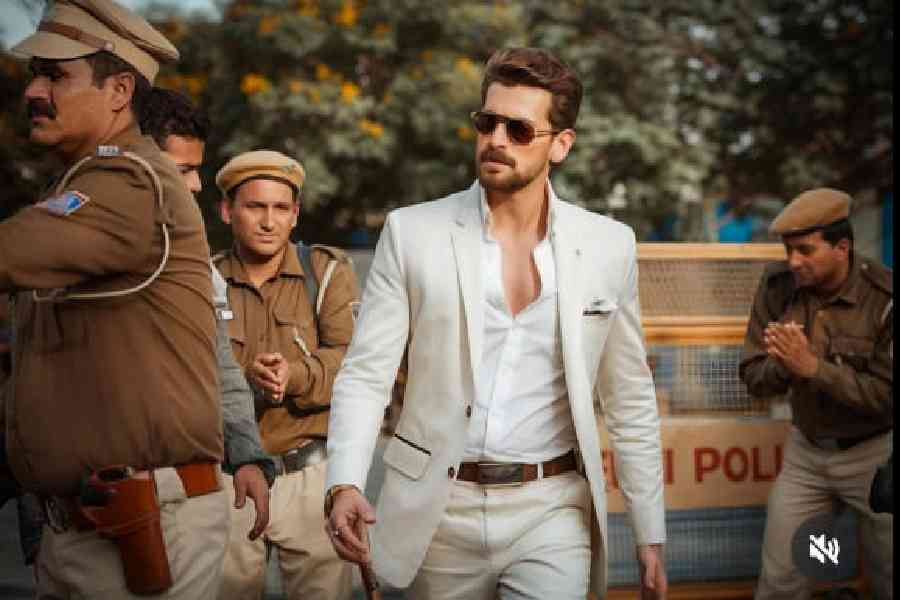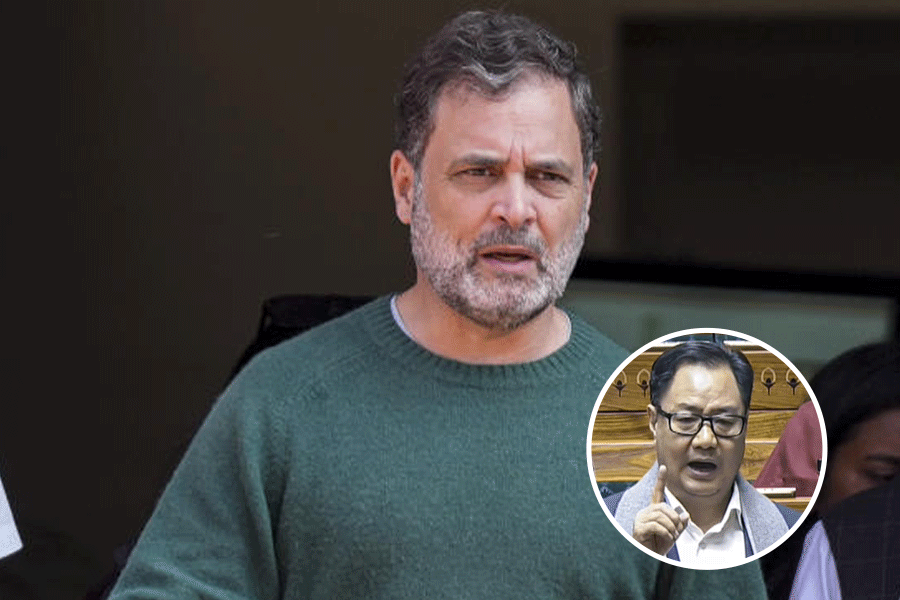Neil Nitin Mukesh plays the antagonist toR. Madhavan’s role of a common man on a mission to uncover systemic corruption in the banking sector in Hisaab Barabar, now streaming on Zee5. He speaks about his choices to do negative roles and work in films down south before pan-India became a buzzword in filmmaking.
When was the last time you visited your bank?
Just yesterday. After doing this film, I have become a little regular at the bank, tallying my statements. Jokes apart, I consider myself more a Radhe Mohan than a Mickey Mehta in real life — somebody who’s vigilant.
So you handle your own finances?
I started to understand my bank transactions very late in life. My father (Nitin Mukesh) handled everything, from finances to investments. My brother, who’s 10 years younger, is very intelligent about financial planning. Post-Covid, my father taught me to handle it all by myself. After doing this film, I’ve delved more deeply into banking matters than what I thought was adequate earlier.
Could the character of Mickey not have been fleshed out a bit more, instead of being a cardboard villain?
I agree that there was potential. We had shot in a certain way, but because of edits it comes across as slightly disjointed. Still, Mickey is not just a cardboard character. He’s more layered than what meets the eye. Of course, there is a larger-than-life persona that an antagonist has to carry. And when you’re playing a role with a comical element, you have to be entertaining.
So is Mickey Mehta the comic relief?
The message of the film is so serious that if you want to share this over two hours toh uss beech ek relief chahiye. This guy is unabashed about being a thug and robbing people. There is a sincerity in his evil. He enjoys his money. He’s wondering: “Why is this guy, Radhe Mohan, fighting for his 27 rupees, 50 paise when I’m ready to give him a smart TV.” When they meet, he even asks him: “Who are you fighting for?”
Also honestly, an antagonist has to be slightly larger than life for an audience to resonate with the evil that he stands for. Mickey is actually the system. He is not Gabbar or Mogambo. He doesn’t scare you. Uss ke liye Radhe Mohan ek makkhi hai. He is saying: “Main mazey le raha hoon, tu bhi le le. Tu itna stressed kyun hai?”
You have played a villain before in Wazir and Players. Was your shift to the anti-hero deliberate?
I never think whether a role is antagonist or protagonist, if it has songs or not. I see how important this character is in the story and if you take him out, whether the story will lose balance. If it does, then the character is important.
In my first film, Johnny Gaddar, he is killing five-six people, he has an extra-marital affair going. So that makes him an antagonist, right? But he is a victim of circumstances. In Saat Khoon Maaf, the Vishal Bharadwaj film I did with Priyanka Chopraji, complex maar diya uss bande ko and he becomes dark. He is the reason she becomes this woman on a murder spree. He was her first husband. Killing him results in a domino effect. Wazir (his character in the Amitabh Bachchan-Farhan Akhtar film) has just one scene in the film. But if you delete it, the film does not stand. The film was originally called ‘Ek aur Ek Do’. After we shot the scene, Vidhu (Vinod Chopra) sir called me and said that he liked the scene so much that he was naming the film after my character. He said: “You have created menace for people to remember.” When writers like Abhijat Joshi and filmmakers like Vidhu Vinod Chopra praise you for one scene, your career is vindicated.
How much do you enjoy the dark shades?
I love it. It’s so layered. Just imagine going on screen knowing that you have to give way to the hero! It’s the biggest sacrifice of an actor. He’s a bigger hero because he’s ready to fall to uplift somebody else. It teaches you not to become insecure or selfish. Take Golmaal. If my character is not there, there is nothing! Who kills Parineeti Chopra? Dikha kuchh raha hai, hai kuchh aur. You need to shock your audience. It’s a chance to display your acting chops.
You are among the earliest in your generation of actors to dabble in southern language films. You worked in the Tamil film Kaththi (2014) even before Bahubali released. Today films are made for pan-India audiences. What had made you think ahead?
During (the shooting of) Prem Ratan Dhan Payo, we were discussing the business of cinema and how our film industries are broken up into multiple languages. If only we had one universal language, like English! I foresaw there was going to be a merger as filmmaking is a universal language. Language itself cannot be a barrier to communicating an emotion or an expression. So I thought as an actor, why don’t I pick up a challenge? That’s when I started hunting for work there and (A.R.) Murugadoss offered me this film, Kaththi. Thus I become one of the first few to do a film down south. Filmmakers were crossing borders anyway. Also Jeetendraji had done it. Our heroines work in the south and their technicians have worked with us. So when the industries become one, it will boil down to how fast you can learn. I learned to speak Tamil and Telugu. Of course, I don’t know the language but it’s easier on my tongue now because of the effort I put in for Kaththi. Right after that Bahubali happened. Saaho was one of our first pan-India big films being made and they asked me to be a part of it. Now we are talking only of pan-India films.
Coming to your family, your grandfather Mukesh’s centenary was in 2023. He died at the start of a concert in Michigan and your father had to take the stage with Lata Mangeshkar. Has he ever spoken about that concert?
That was the inception of Nitin Mukesh. My father wanted to be a filmmaker. He worked with Hrishikesh Mukherjee for years as an assistant director. He had written this film which was supposed to be produced. His script was ready. He had already spoken to his actors. He was touring with my grandfather when he passed away in Detroit. My father had to support the family immediately. There was nothing else that he could think of. He called himself Nitin Mukesh so that he could sing his father’s songs and keep his legacy alive.
Mukesh was barely 53 then. How young was your father?
They used to marry young so I presume my father was in his mid or late 20s. But creativity has no boundaries. Like I’m an actor but I also write films and play the piano. My father too was a trained singer. My grandfather was his guru. Pandit Jagannath Prasad taught him playback singing. He had a widowed mother, two unmarried sisters and a younger brother, who he had to educate, bring up and get them all married and settled down, and an elder sister who had just recently married. So all that was his responsibility. He had to take the stage with Lata aunty and move forward in life.
You posted a video recently on Instagram of your daughter singing along with Sonu Nigam. Does she love singing?
My daughter loves singing with her grandfather. The two get along like a house on fire. Of course, she’s got a long way to go to understand what singing is. Right now, we are just encouraging her and not really trying to train her. She’s six years old. When my father’s guruji comes, she’ll sit with them casually. We’ll start training her, if she’s still interested, maybe next year onwards. Sonu bhai is like an elder brother. He came home and said that he had seen a video of her singing with Nitinji. So I said: “Why don’t you all sing a song together?” The video went viral.
What comes next from you?
I’ve just finished a web show with Jacqueline Fernandez, directed by Abhishek Sharma of the Tere Bin Laden, Parmanu and Ram Setu fame. It is now titled GOATs but they will change the name. I’ve completed a big film with a National Award-winning filmmaker. It’s a satiric take in a comic way, telling a very important story. Both should release this year — one in April, the other by June.










